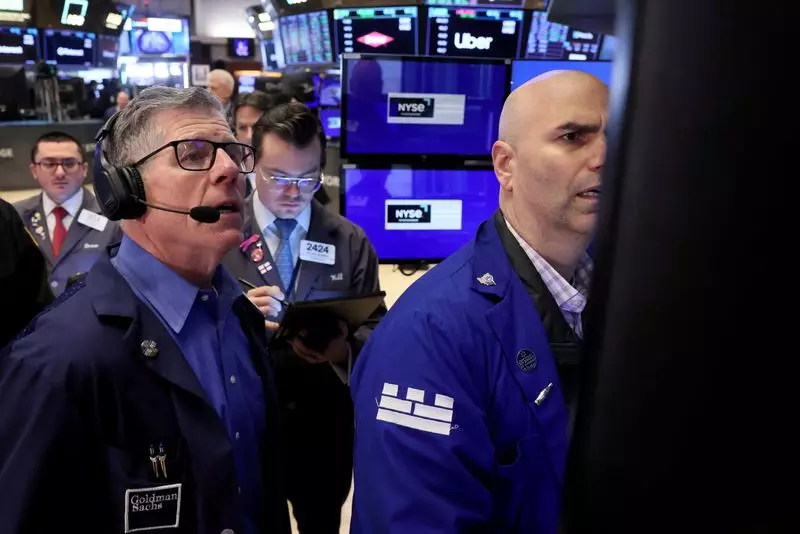The U.S. economy generated about 272,000 jobs in May, significantly surpassing analysts’ expectations of 185,000. This unexpected surge in job creation led to concerns among investors that the Federal Reserve may delay interest rate cuts. As a result, the benchmark S&P 500 experienced fluctuations in the immediate aftermath of the report, with U.S. Treasury yields rising as traders adjusted their expectations for a rate reduction in September.
Despite the initial market reaction, the S&P 500 ultimately ended slightly lower, with sectors such as utilities, materials, and communication services dragging down the index. However, financials and technology stocks managed to outperform others. The overall performance for the week saw the S&P 500 gaining 1.32%, the Nasdaq rising 2.38%, and the Dow adding 0.29%.
Portfolio manager Sandy Villere noted that the strong jobs data signaled a lack of immediate rate cuts, leading to increased pressure on riskier small-cap stocks. With the possibility of interest rates remaining higher for longer, investors may need to recalibrate their strategies for the current economic environment. Traders now see a 56% chance of a rate reduction in September, according to the FedWatch tool. The upcoming U.S. inflation data and the Federal Reserve’s policy meeting in June will be closely monitored for further insights into the central bank’s stance on interest rates.
Several individual stocks experienced notable movements following the release of the jobs data. GameStop shares plummeted by 39% amid volatile trading, coinciding with the return of stock influencer “Roaring Kitty.” Other meme stocks like AMC Entertainment and Koss Corp also recorded significant declines. Nvidia saw a slip in its valuation, while Lyft shares rose following a positive growth forecast. Overall, declining issues outnumbered advancers on both the NYSE and Nasdaq, indicating a bearish sentiment in the market.
The S&P 500 and Nasdaq both saw new highs and lows, with total volume of shares traded across U.S. exchanges standing at approximately 10.75 billion. This figure was lower than the 12.7 billion average over the last 20 trading days, suggesting subdued trading activity amid the uncertainty surrounding interest rate cuts and economic growth.
The strong U.S. jobs data had a mixed impact on Wall Street, with initial optimism giving way to concerns about the Federal Reserve’s monetary policy. Investors will continue to closely monitor economic indicators and central bank decisions for clues about the future direction of the stock market.

